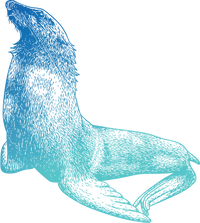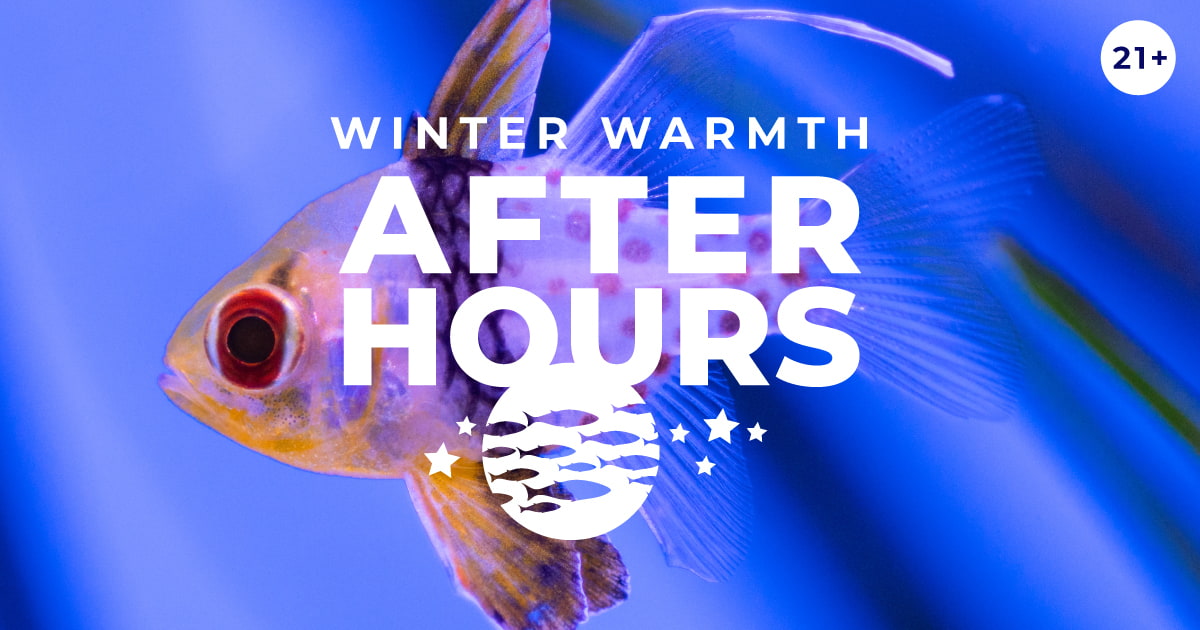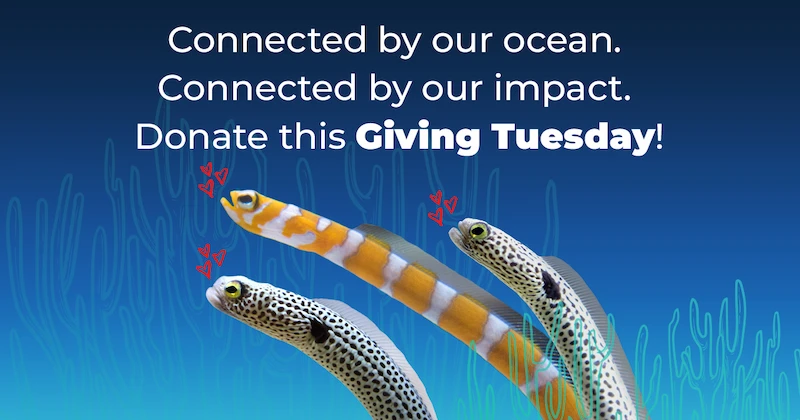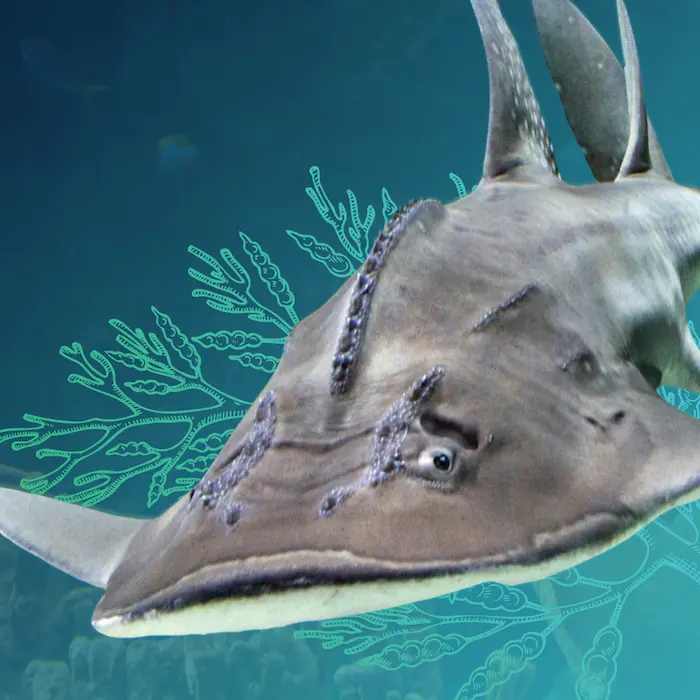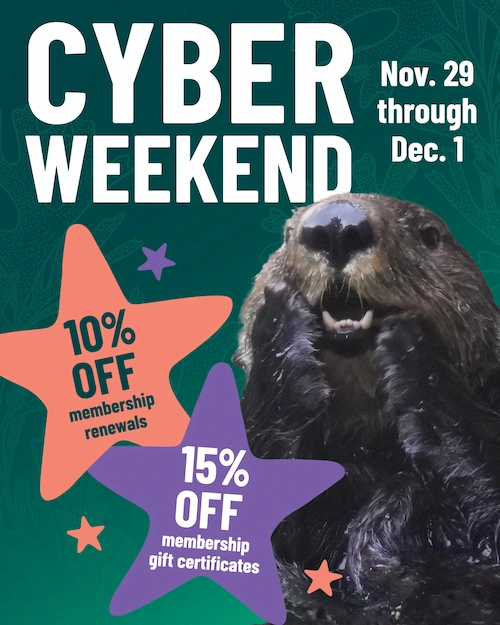Fulfilling our mission of Inspiring Conservation of Our Marine Environment often starts with facilitating stronger bonds between animals and people. As it turns out, a very human emotion may be the key to better connections.
When we humans notice animals and learn about their needs, we begin to care about the quality of their lives. That feeling comes from empathy—the ability and capacity to understand the experiences of other beings. It’s a skill everyone can learn, and research shows empathy inspires us to take better care of animals.
SHARING THE CARING
Did you know that the Seattle Aquarium conducts empathy workshops for educators and members of the Association of Zoos and Aquariums (AZA)? At these popular workshops, attendees learn the importance of empathy in creating guest experiences that can change the lives of animals and people.
ALL HANDS ON DECO!
The Seattle Aquarium then founded Developing Empathy for Conservation Outcomes (DECO), a biannual conference where professionals from zoos, aquariums, nature centers and museums brainstorm ideas, share information and elevate best practices.
The first DECO conference was wide-ranging, thought-provoking, collaborative and chock-full of ideas. Last fall’s DECO conference turned to putting theories into action. Six working groups were formed to develop and test innovative ways to weave empathic thinking into everything zoos and aquariums do.
FROM QUESTIONS TO ANSWERS, ACTIONS TO RESULTS
Today, these groups are in the process of identifying what to investigate. For example, do experiences with touchable biofacts (such as bones, teeth, pelts and fur) stir empathy? What inspires guests to feel kinship with arthropods and invertebrates (creatures with no backbone)? What are the best ways to engage all our neighbor communities in exploring animals at Seattle Aquarium? How can we better communicate the value of empathy and conservation action?
The working group on imaginative play is already observing how the Seattle Aquarium’s new Caring Cove figures in a child’s perspective-taking and exploring narratives that strengthen a connection with animals.
Perspective-taking in Caring Cove begins with asking questions: ‘What does my animal need? How can I provide for those needs?’ and ‘How does this care help my animal and its wellbeing?'
Nicole Starr Killebrew, interpretation coordinator
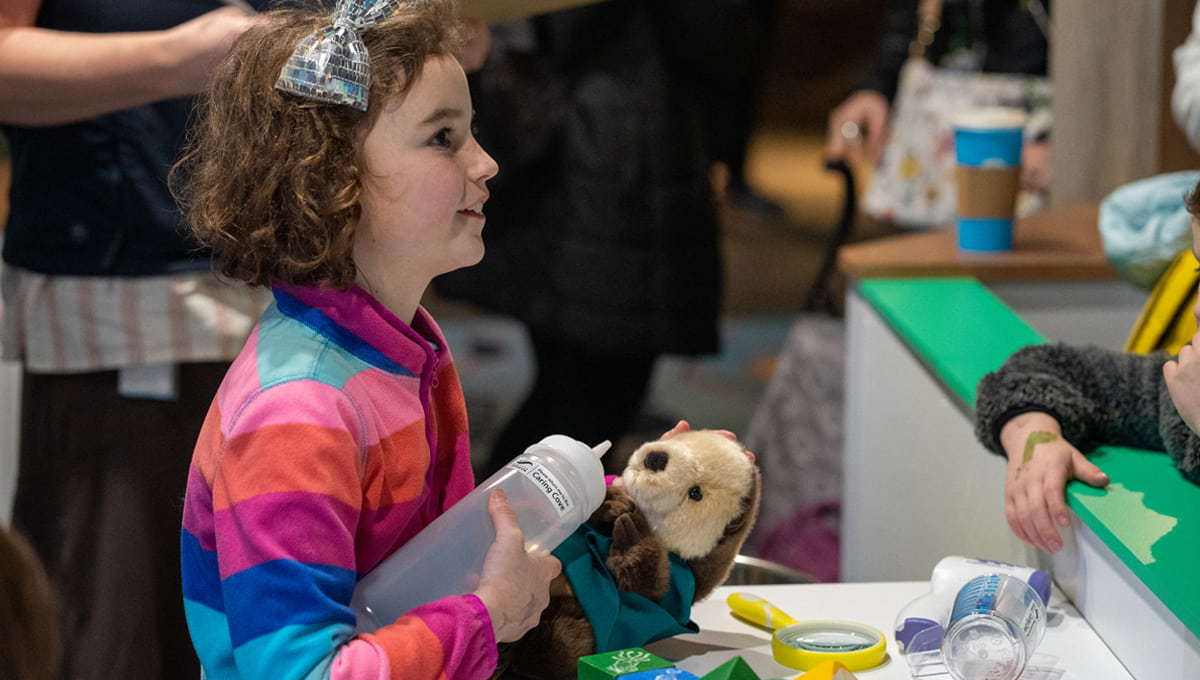
Another working group is focused on ways to help guests care for less-charismatic creatures. People are accustomed to reading other people’s faces. What would spark guests’ curiosity about “animals without faces”? After all, barnacles, sea cucumbers, jellies and anemones need love too.
Once, we thought information was enough to move people to act, but they need to feel something, too. Now we understand that, while there’s a lot to share about animals and the natural world, there’s so much to learn. The work to foster empathy for wildlife and inspire conservation among our audiences now comes from a place of humility, empathy and learning from the people and communities we serve.
Sarah Brenkert, principal evaluator
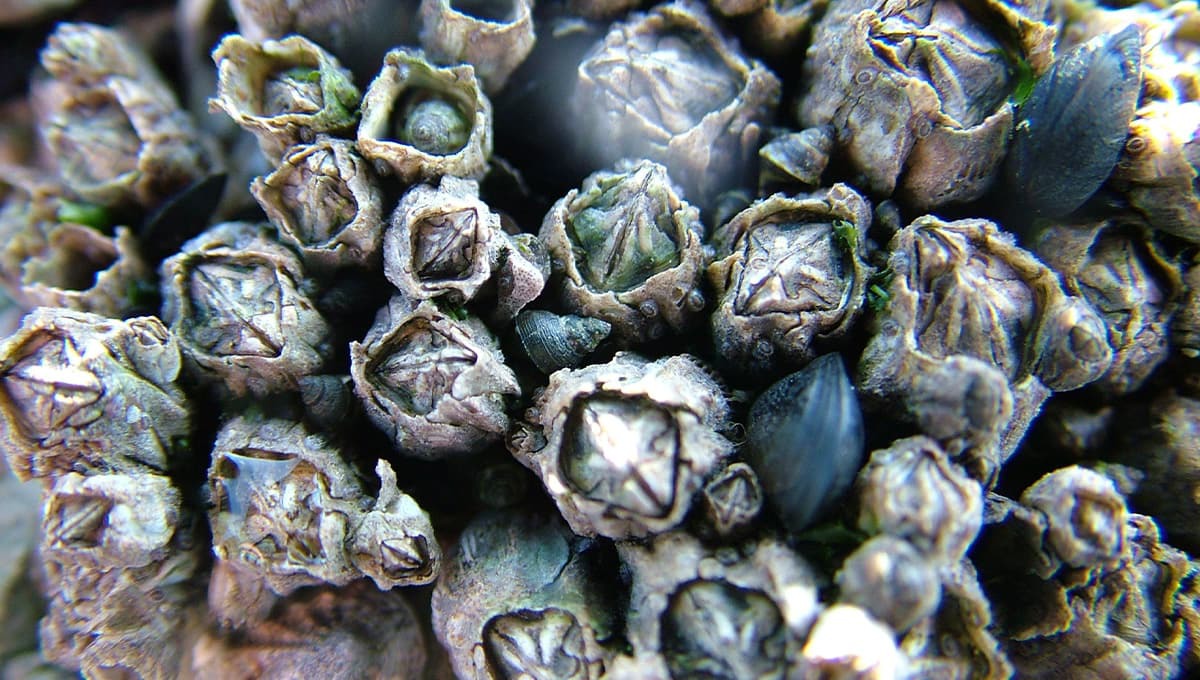
DISCOVER YOUR “BARNACLE MOMENT” AT THE SEATTLE AQUARIUM!
How do people get hooked on marine life? Often it’s the moment something they thought was a rock or crusty growth turned out to be a living animal. That’s a “barnacle moment”—and a big step toward empathy.
Describing her own such moment, Interpretation Training Coordinator Cari Garand says, “It was seeing the amazing barnacle at the beach! I was fascinated to learn they live upside down in a home they built, doing headstands while eating with their legs. The complexity of a seemingly simple creature catapulted me into a lifetime of marine education and conservation.”
For more information about empathy workshops, visit our webpage. Or stay in the current with our Empathy Café web chats. And plan a visit to the Aquarium soon!
